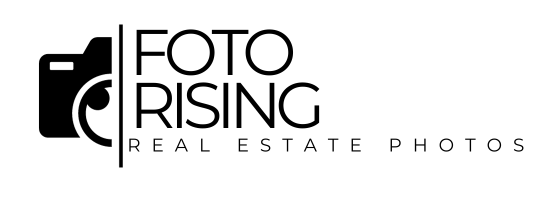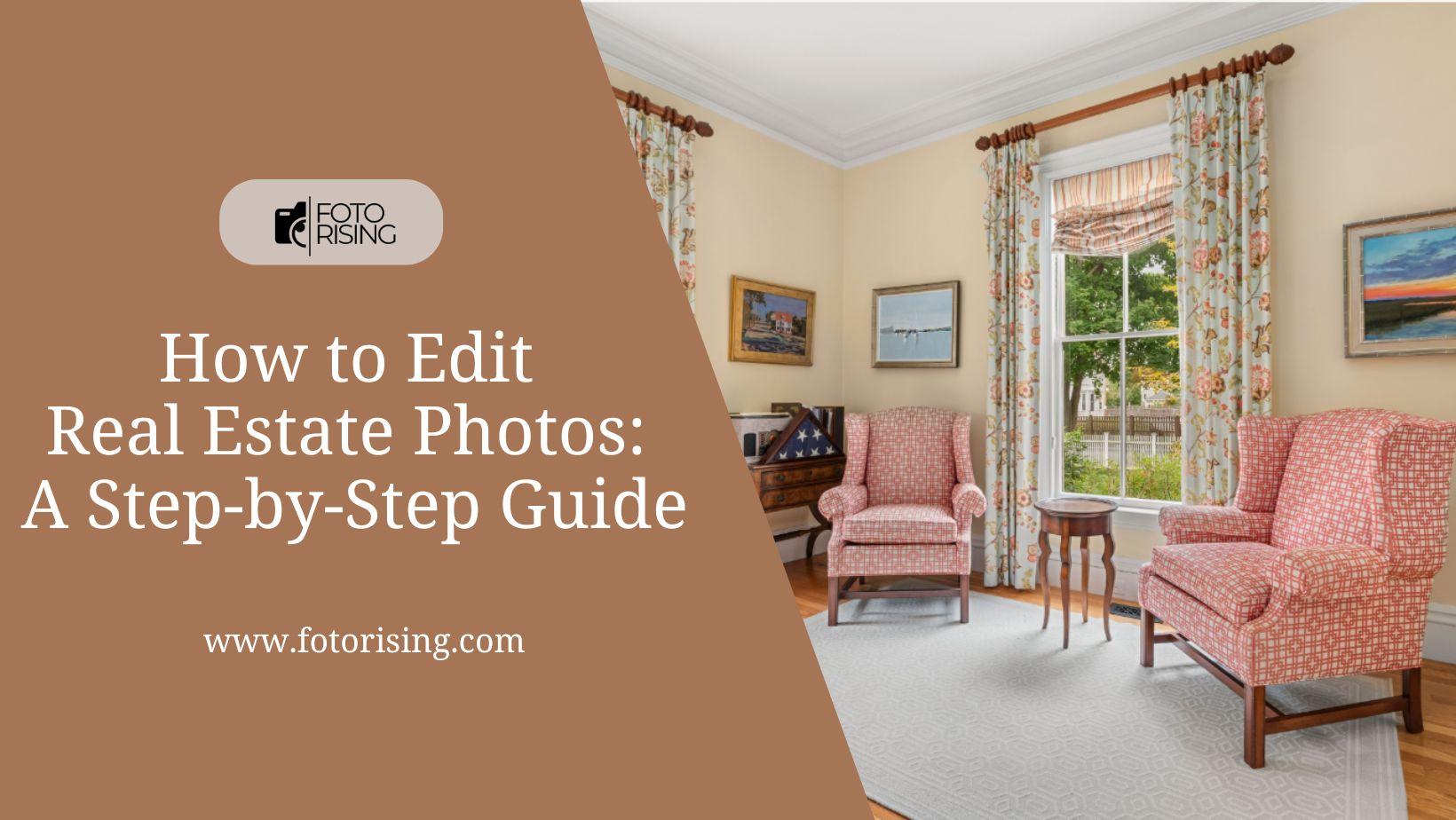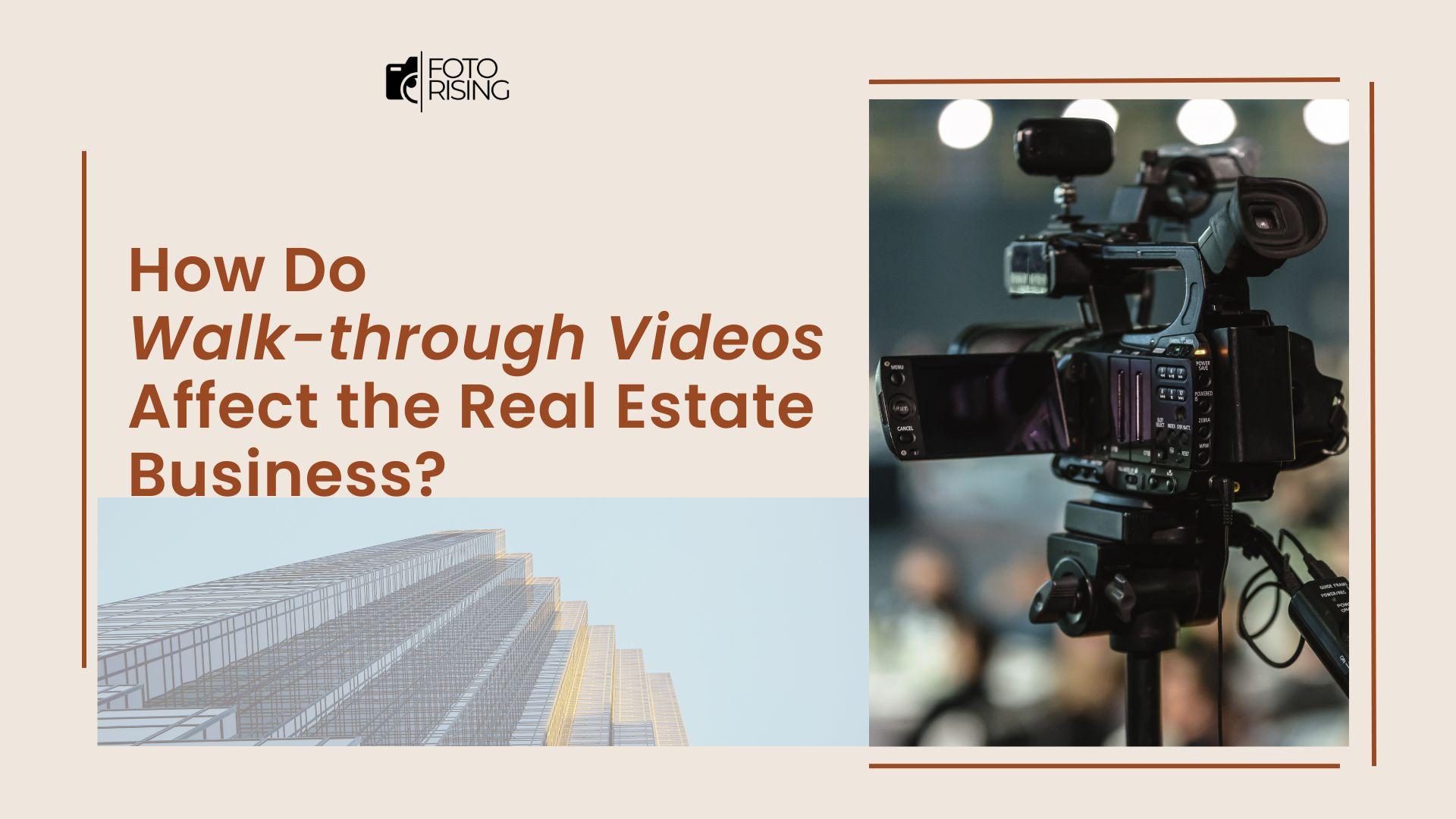Search Blog
Hit enter to search or ESC to close
Trending Now
Best Cameras for Real Estate Photography in 2024: A Buyer’s Guide
- Get link
How Do Walk-through Videos Affect the Real Estate Business?
- Get link
- Get link
If you're passionate about photography and have an eye for architectural details, becoming a freelance real estate photographer might be the perfect career for you. This guide will walk you through the steps to start your journey, even if you have no prior experience in real estate photography jobs.
1. Understand the Role of A Freelance Real Estate Photographer
A freelance real estate photographer captures high-quality images of properties for sale or rent. These photos are crucial as they are often the first impression potential buyers or renters have of a property. Your job is to showcase the property in the best possible light, highlighting its strengths and downplaying any weaknesses. Additionally, you must understand the unique features of each property to present them in a visually appealing and marketable way, ensuring that each listing stands out.

2. Develop Your Real Estate Photography Skills
To excel as a freelance real estate photographer, you need a mix of technical skills and artistic vision. Here are some steps to develop these skills:
- Learn the Basics of Photography: Understanding lighting, composition, and camera settings is essential. Online courses, photography books, and practice will be your best friends.
- Specialize in Real Estate Photography: This niche has specific requirements, such as understanding how to capture wide-angle shots and how to use natural light effectively.
- Editing Skills: Familiarize yourself with photo editing software. A good real estate photo editing app, such as Lightroom or Photoshop, can make a significant difference in the quality of your photos. You might also explore free AI real estate photo editors for quick enhancements.
3. How Should a Freelance Real Estate Photographer Build a Portfolio?
Your portfolio is your visual resume and a critical component in attracting clients. Start by photographing properties of friends or family members for free to build your portfolio. Ensure it demonstrates a variety of property types and styles to showcase your versatility.
- Highlight Key Features: Showcase your ability to capture essential elements of homes, such as kitchens, bathrooms, and living spaces.
- Before and After Edits: Include examples of your editing skills by showing before and after shots, demonstrating how you can enhance photos to make properties look their best and stand out in the market.
4. Get the Right Equipment for a Freelance Real Estate Photographer

Investing in quality equipment is essential for freelance real estate photographers:
- Camera: A DSLR or mirrorless camera with a wide-angle lens is fundamental. While it doesn't need to be expensive, a higher-quality camera allows for faster focusing and improved photo quality.
- Tripod: A sturdy tripod is indispensable for stable shots, especially in low light. It minimizes blur and ensures sharper images.
- Lighting: External flashes or lighting kits provide control over illumination, crucial for indoor or dimly lit settings, resulting in professional-looking shots.
- Editing Software: Tools like Lightroom or Photoshop are vital for refining and enhancing images, adjusting exposure, color balance, and composition, among other elements.
The necessary real estate photography gears for your reference:
Unlock Essential Real Estate Photography Gear for Stunning Listings 2024
A No Nonsense Guide To Real Estate Photography Gear
5. Set Your Rates to Balance Freelance Real Estate Photographer Jobs
Setting rates as a freelance real estate photographer requires careful consideration and research:
- Hourly Rates vs. Per Project: Choose between charging by the hour or per project, considering factors like the complexity of the job and your efficiency. While some opt for hourly rates, many prefer per-project pricing for transparency and flexibility.
- Package Deals: Enhance your offerings by providing package deals for multiple properties or additional services such as virtual tours. This approach not only simplifies pricing for clients but also encourages repeat business and upselling opportunities. Consider the value you provide and tailor packages to meet the diverse needs of your clientele.
6. Market Yourself in the Real Estate Photography Industry
Effective marketing is essential for freelance real estate photographers to secure jobs in a competitive industry:

- Create a Website: Establish an online presence with a professional website showcasing your portfolio, services, and contact information. This platform serves as a centralized hub for potential clients to explore your work and reach out to you.
- Social Media: Utilize platforms like Instagram and Facebook to showcase your photography skills and attract potential clients. Regularly share captivating images, behind-the-scenes content, and client testimonials to engage your audience and build credibility.
- Networking: Forge connections with real estate agents, property managers, and industry professionals through networking events, online communities, and professional organizations. Building relationships within the industry can lead to valuable referrals and job opportunities.
7. Handle the Business Side
Being a freelancer means managing your own business. This includes:
- Contracts and Invoices: Use contracts to outline the scope of work and payment terms. Invoicing software can help you keep track of payments.
- Taxes and Insurance: Understand your tax obligations and consider getting insurance to protect your equipment and business.
8. Keep Learning and Growing to Become a Real Estate Freelancer
To stay ahead in the dynamic real estate photography industry, it's crucial to keep learning and adapting:
- Continued Education: Enroll in advanced courses and attend workshops to stay updated on industry practices and photography technology.
- Experiment with New Techniques: Explore fresh photography styles and editing methods to keep your portfolio engaging and innovative. By continuously refining your skills and pushing creative boundaries, you'll remain competitive and adaptable in the ever-evolving real estate market.

Conclusion
Becoming a freelance real estate photographer requires dedication, skill, and business acumen. By following these steps, you can build a successful career and enjoy the freedom and creativity that comes with freelancing. Start by developing your photography skills, building a compelling portfolio, and marketing your services effectively. With persistence and passion, you'll find ample opportunities in the real estate photography field.
Related Posts:
Become a Real Estate Photographer - Is it worth?
Top Tips for Editing Real Estate Photos Like an Expert
HDR real estate photography- How Many Exposures is Prefered?
You May Also Like
How to Edit Real Estate Photos: A Step-by-Step Guide
- Get link
Best Cameras for Real Estate Photography in 2024: A Buyer’s Guide
- Get link
How Do Walk-through Videos Affect the Real Estate Business?
- Get link




5 responses to “How to Become a Freelance Real Estate Photographer”
[…] More:How To Become A Freelance Real Estate PhotographerTop 10 Video Editing Trends In 2024Mastering Real Estate Photo Editing Effects: A Guide To […]
Very interesting information!Perfect just what I was searching for!<a href="http://jeepgenesis.com/__media__/js/netsoltrademark.php?d=www.blogexpander.com" rel="nofollow ugc">Raise blog range</a>
Others have progressive jackpots, where the odds of winning increase as more people play and contribute to the jackpot amount.
This provider has been around since 1994 and is recognised as one of
the most reputable names in the industry.
voluptatem velit aperiam sint laborum vel error et. et quia doloribus reprehenderit quod sequi rerum in.
Your article helped me a lot, is there any more related content? Thanks! <a href="https://accounts.binance.com/sk/register?ref=OMM3XK51" rel="nofollow ugc">https://accounts.binance.com/sk/register?ref=OMM3XK51</a>